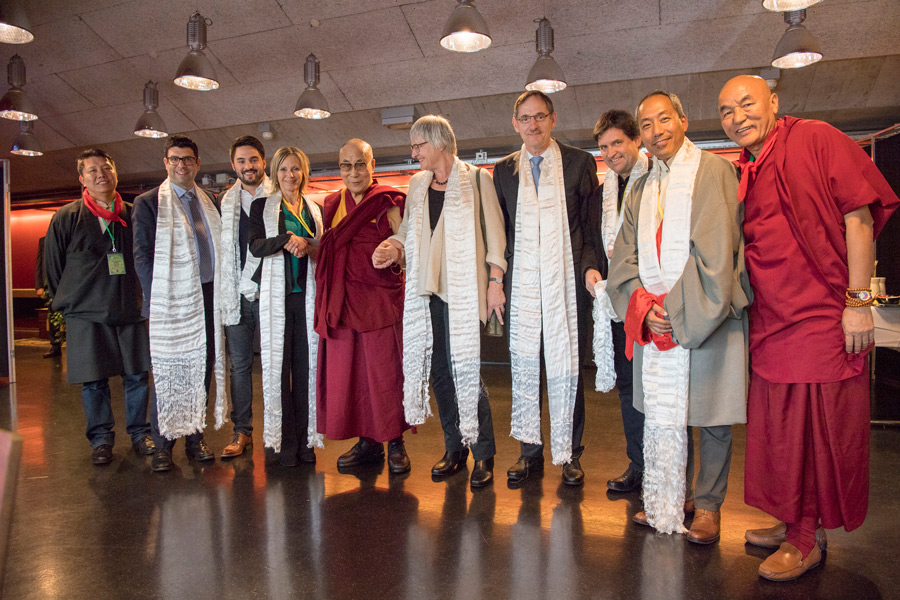
(TibetanReview.net, Oct16, 2016) – The exiled spiritual leader of Tibet, the Dalai Lama, on Oct 14 joined for lunch with members of the Swiss Parliamentarian Group for Tibet, along with the President of the Zurich Canton, the President of the Swiss Tibetan Friendship Association, and elected Tibetan representatives. The Dalai Lama was in Zurich for a full day of religious teachings.
Earlier, he was welcomed to the Zurich Hallenstadion by a crowd of 9,000 people who had waited for him enthusiastically to make a long-life offering to him organized by the Tibetan communities of Switzerland and Liechtenstein.
After the long-life prayer offering, the Dalai Lama gave teachings on the first chapter of Nagarjuna’s ‘Precious Garland’, which explains how to attain the high status of good rebirth; the volume two of ‘Stages of Meditation’ composed by Shantarakshita’s disciple Kamalashila; and on the ‘37 Practices of a Bodhisattva’ by Ngulchu Thogme Sangpo.
The Dalai Lama said that Tibetan Buddhism, which is based on ancient India’s Nalanda tradition, is the most comprehensive one among all traditions today in that it also includes the works on logic and epistemology by Dignaga and Dharmakirti, which are found nowhere else.
At the end of the teachings the Dalai Lama noted that Tibetans had strong links with Switzerland, the first country after India to allow them to settle. He recalled with gratitude the great help Tibetans had received early on from the Swiss Red Cross.
The Dalai Lama’s final advice to his listeners was that they should be 21st century Buddhists, not relying on blind faith alone, but developing an understanding of the profundity of what the Buddha had taught.


